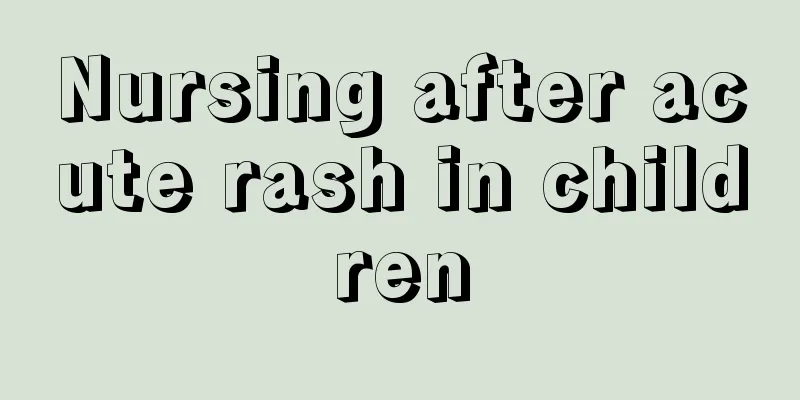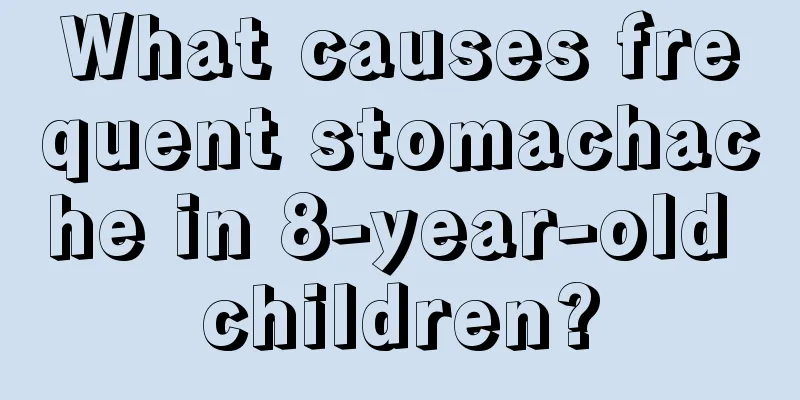Why does a breastfed baby have diarrhea?

|
The baby's physical condition is what worries parents the most. Whenever the baby feels a little unwell, parents will start to worry day and night, hoping that the baby will recover soon. Especially for babies who are breastfed, they have just begun to adapt to this strange world that is so different from the mother's body. Their resistance is still very poor, and they are prone to physical discomfort. For example, babies who are breastfed have diarrhea. What's going on? It may be physiological diarrhea. What is physiological diarrhea and what are its causes? Physiological diarrhea is more common in infants under 6 months old. They appear puffy and often have eczema. They have diarrhea soon after birth and have frequent bowel movements a day, even more than ten times. The amount of stool each time is not necessarily large, and it contains a small amount of water and generally has no special fishy smell. Infants with physiological diarrhea usually have no other symptoms except increased frequency of bowel movements, good appetite, no vomiting, and their growth and development are not affected. After adding complementary foods, their bowel movements gradually return to normal. We know that babies have a certain limit to their digestive capacity. If the food they eat exceeds their tolerance, diarrhea will occur. For example, if half of the water in milk is evaporated to make so-called evaporated milk, and then this milk is fed to babies without dilution, some babies may suffer from diarrhea due to the high nutritional content of the milk. Furthermore, the composition of breast milk varies greatly depending on nationality, eating habits, health status and individual differences. Some breast milk does not contain enough nutrients, resulting in malnutrition for the baby, while some breast milk contains more nutrients than the baby needs, and the excess is excreted from the body with diarrhea. Therefore, although babies with "physiological diarrhea" excrete some nutrients in their stool, they have still absorbed more nutrients than ordinary children. There is more than one reason for babies to have diarrhea. It may be that they have eaten the wrong food, they have a cold, or the external environment is not clean and hygienic. But why do babies who are breastfed have diarrhea? Based on what has been said above, everyone knows that this may be related to the baby's own ability to absorb nutrients and the amount of nutrients contained in breast milk. |
<<: How to prevent complications of colds in children
>>: How to treat lymph nodes in babies?
Recommend
Symptoms and causes of neurogenic urinary frequency in children
I believe everyone has heard of neurogenic urinar...
How to cut nails for newborn baby?
Newborn babies are in the stage of growth and dev...
What are the dangers of precocious puberty in children?
The incidence of precocious puberty in children i...
Which department should children go to for bedwetting?
In life, bedwetting in children is generally path...
Child's eye bleeding
Many children will encounter some accidents in th...
What should I do if my baby's eyes are tearing and have eye mucus?
Babies are the apple of their parents' eyes. ...
Five ways to develop children's interpersonal skills
Parents can help their children develop interpers...
What to do if your baby can't speak clearly
In daily life, every couple in every family wants...
Can ADHD in children be cured?
A person's life basically ends when he or she...
Elevated neutrophil count in newborns
If the neutrophil count of a newborn is high, thi...
Can babies eat grapes when they have a fever?
If your baby has a fever, you need to find out th...
Lymph nodes on baby's head
Most people will be very worried when they hear a...
9 benefits of baby swimming to promote physical and mental development
1. Stimulate and promote brain nerve development,...
What should I do if my baby doesn't cough during the day but coughs at night?
There is a reason why your baby doesn't cough...
Can a child's nails grow back if they fall off?
Children are rather naughty, and as they move aro...









